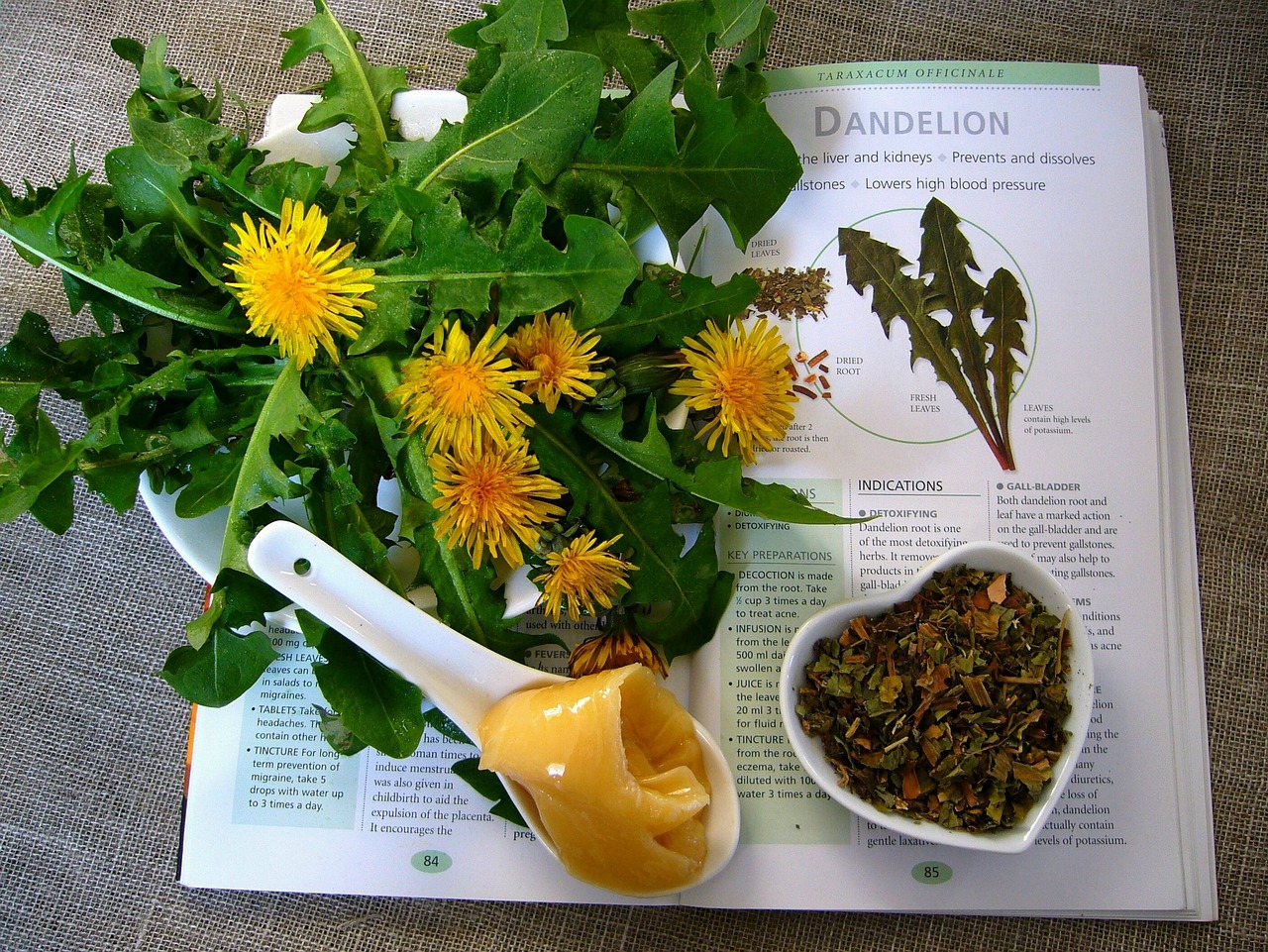Unearth the Hidden Treasures: Herbs That Soothe Chronic Pain Effectively
Are you looking for natural ways to manage your chronic pain?
Look no further! In this updated guide, we’ll explore a variety of herbal remedies that can help alleviate your discomfort.
Whether you’re dealing with arthritis, fibromyalgia, migraines, or chronic back pain, we’ve got you covered.
From turmeric for arthritis pain to lavender for migraine relief, discover the power of nature’s remedies.
Say goodbye to constant pain and start your journey towards a more comprehensive approach to pain management.

Unleash the Power of Nature: Definitive Guide to Herbal Remedies for Chronic Pain Relief. Photo by angelorosa
Key Takeaways
- Numerous factors can cause chronic pain, and identifying the root cause is crucial for effective pain management.
- Herbal remedies such as turmeric, ginger, willow bark, and devil’s claw can be natural alternatives to conventional pain medications.
- Consulting with a healthcare professional before starting herbal treatment is essential to ensure safety and effectiveness.
- Different herbal remedies like turmeric, ginger, boswellia, and devil’s claw can be beneficial for managing arthritis pain, fibromyalgia pain, migraine relief, and chronic back pain.
Understanding Chronic Pain and Herbal Remedies
You need to familiarize yourself with the causes of chronic pain and how herbal remedies can help alleviate it. Understanding the causes of chronic pain is crucial in finding effective ways to manage and relieve it.
Several factors, such as injury, inflammation, nerve damage, or underlying health conditions, can cause chronic pain.
By identifying the root cause, you can tailor your approach to pain management. Herbal remedies have been used for centuries to alleviate chronic pain and promote well-being.
They offer a natural alternative to conventional pain medications, which often come with side effects and risks. Some herbal remedies for chronic pain management include turmeric, ginger, willow bark, and devil’s claw.
These herbs have anti-inflammatory and analgesic properties that can help reduce pain and inflammation.
It’s important to note that while herbal remedies can be effective for some individuals, they may not work for everyone. It’s always recommended to consult with a healthcare professional before starting any herbal treatment for chronic pain.
Common Herbal Remedies for Arthritis Pain
Explore the effectiveness of common herbal remedies in relieving arthritis pain.
When it comes to managing arthritis pain, many individuals turn to herbal remedies as a natural alternative to traditional medication.
Here are some common herbal remedies that have shown promise in alleviating knee and joint pain:
- Turmeric: This vibrant yellow spice contains curcumin, a compound known for its anti-inflammatory properties. Studies have shown that turmeric can help reduce pain and improve joint function in individuals with arthritis.
- Ginger: Ginger is known for its anti-inflammatory and analgesic properties. It can help reduce joint pain and swelling associated with arthritis.
- Boswellia: Also known as Indian frankincense, boswellia has been used for centuries to treat inflammatory conditions such as arthritis. It can help reduce pain and improve joint mobility.
- Devil’s Claw: This herb has been used in traditional medicine to relieve joint pain and inflammation. It may help reduce arthritis-related knee pain and improve overall function.
- Willow bark: Willow bark contains a compound called salicin, like aspirin. It can help alleviate pain and reduce inflammation in individuals with arthritis.
Exploring Natural Solutions for Fibromyalgia Pain
Discover three effective natural solutions for managing fibromyalgia pain.
Fibromyalgia is a chronic condition characterized by widespread musculoskeletal pain, fatigue, and tenderness.
While there is no cure for fibromyalgia, there are alternative treatments and herbal supplements that can help alleviate the symptoms and improve quality of life.
Here are three natural solutions that have shown promise in managing fibromyalgia pain:
| Alternative Treatment | Herbal Supplement | Benefits |
|---|---|---|
| Acupuncture | Turmeric | Reduces pain |
| Yoga | St. John’s Wort | Relieves depression |
| Massage therapy | Devil’s Claw | Eases inflammation |
Acupuncture, a traditional Chinese therapy, involves inserting thin needles into specific points in the body.
It has been found to alleviate fibromyalgia pain and improve sleep quality. Turmeric, a spice commonly used in cooking, contains curcumin, which has anti-inflammatory properties.
It can help reduce pain and inflammation in fibromyalgia patients.
Yoga combines physical postures, breathing exercises, and meditation to improve flexibility, reduce stress, and promote relaxation.
St. John’s Wort, an herbal supplement, has been used to treat depression and anxiety, which are often associated with fibromyalgia.
Massage therapy can help reduce muscle tension and improve circulation, relieving fibromyalgia pain. Devil’s Claw, a plant native to South Africa, has anti-inflammatory properties and may help alleviate inflammation associated with fibromyalgia.
Herbal Remedies for Migraine Relief
Try incorporating these three herbal remedies into your routine for migraine relief:
- Feverfew: Feverfew is a popular herb known for its potential to reduce the frequency and severity of migraines. It contains compounds that possess anti-inflammatory and vasodilatory properties, which can help alleviate the pain associated with migraines. Studies have shown that taking feverfew regularly can lead to a reduction in the number of migraines experienced.
- Butterbur: Butterbur is another herbal remedy used for centuries to treat migraines. It contains active compounds with anti-inflammatory and antispasmodic effects, which can help relax blood vessels and reduce the frequency of migraines. Research has shown that taking butterbur extract can significantly decrease the frequency and intensity of migraines.
- Peppermint: Peppermint has long been known for its soothing properties and ability to alleviate headaches. Its menthol content acts as a muscle relaxant and can help relieve tension headaches, a common trigger for migraines. Applying peppermint oil topically or inhaling its aroma can relieve migraine symptoms.
- Ginger: Ginger has been used for centuries to treat various ailments, including migraines. It possesses anti-inflammatory and analgesic properties that can help reduce the pain and inflammation associated with migraines. Consuming ginger tea or taking ginger supplements can provide relief from migraines.
- Lavender: Lavender has calming and relaxing properties, which can help alleviate the stress and anxiety that often accompany migraines. Inhaling lavender essential oil or applying it topically can help reduce the intensity and duration of migraines.
While herbal remedies can be effective for some individuals, it’s important to note that everyone’s response may vary.
It’s always advisable to consult with a healthcare professional before incorporating new remedies into your routine, especially if you have a pre-existing medical condition or are taking other medications.
Managing Chronic Back Pain with Herbal Remedies
Ease your chronic back pain with these effective herbal remedies. Chronic back pain can be debilitating and affect your daily life.
Fortunately, there are natural remedies that can help alleviate the pain and improve your quality of life. One common cause of back pain is sciatica, which occurs when the sciatic nerve is compressed or irritated.
Natural remedies for sciatica pain include herbal supplements such as turmeric, white willow bark, and devil’s claw. These herbs have anti-inflammatory properties that can reduce pain and inflammation in the affected area.
Additionally, herbal supplements for joint pain, such as ginger and boswellia, can also provide relief for chronic back pain. Ginger has been used for centuries to treat pain and inflammation, while boswellia has been found to have anti-inflammatory effects.
It’s important to note that herbal remedies may not provide immediate relief, and it’s always best to consult a healthcare professional before starting any new treatment. By incorporating these natural remedies into your routine, you can manage your chronic back pain and improve your overall well-being.
Frequently Asked Questions
Are Any Potential Side Effects or Interactions of Herbal Remedies for Chronic Pain?
Potential side effects and interactions with other medications are important considerations when using herbal remedies for chronic pain. It’s crucial to know that herbal remedies can have side effects, such as gastrointestinal issues or allergic reactions.
Additionally, these remedies may interact with other medications you’re taking, potentially diminishing their effectiveness or causing adverse effects.
It is always recommended to consult with a healthcare professional before incorporating herbal remedies into your pain management regimen.
Can Herbal Remedies Completely Eliminate Chronic Pain, or Are They Just Meant to Provide Temporary Relief?
Can herbal remedies work like magic, banishing chronic pain forever?
Or are they more like a temporary Band-Aid, offering relief but not a permanent solution?
Regarding herbal remedies for chronic pain, it’s essential to understand that they may provide different outcomes for different individuals.
While some people may experience complete elimination of pain, others may find that herbal remedies offer only temporary relief.
Additionally, it’s crucial to consider the potential side effects and interactions of these remedies before incorporating them into your pain management routine.
How Long Does It Take Herbal Remedies to Start Showing Results for Chronic Pain?
Typically, herbal remedies for chronic pain can start showing results within a few weeks of use. However, it’s important to note that individual responses may vary.
Some people may experience relief sooner, while others may take longer to see the effects. As with any treatment, it’s crucial to consult with a healthcare professional before starting herbal remedies.
They can guide potential side effects or interactions that may occur.
Are Herbal Remedies Safe for Long-Term Use, or Should They Only Be Used for Short Periods?
Herbal remedies for chronic pain, when used in the long term, can be safe and effective.
Compared to pharmaceutical pain relievers, they offer a more natural alternative with fewer side effects.
However, it is essential to consult with a healthcare professional before starting any long-term herbal regimen, as individual responses may vary.
They can guide dosage and potential interactions and monitor your progress to ensure safety and effectiveness.
Are Any Specific Dietary or Lifestyle Changes That Should Be Made in Conjunction with Using Herbal Remedies for Chronic Pain?
Making dietary and lifestyle changes can enhance the effectiveness of herbal remedies for chronic pain.
Just like a well-tuned engine needs the right fuel and maintenance, your body requires proper nutrition and healthy habits to maximize the benefits of these remedies.
By incorporating dietary modifications, such as consuming anti-inflammatory foods and reducing processed sugars, along with lifestyle changes like regular exercise and stress management, you can create an integrated approach that supports long-term pain management.
Elizabeth Redd: I am a passionate advocate for Health and Healing, dedicated to empowering individuals to live their best lives.
As the founder and publisher of Health and Healing, I have established myself as a guiding force in the wellness industry.
I am committed to providing the latest research, holistic approaches, and inspiring stories to open new possibilities for your health and healing journey.
Learn more about Elizabeth and Join Us at Health and Healing. Also, check out My About Page.





0 Comments